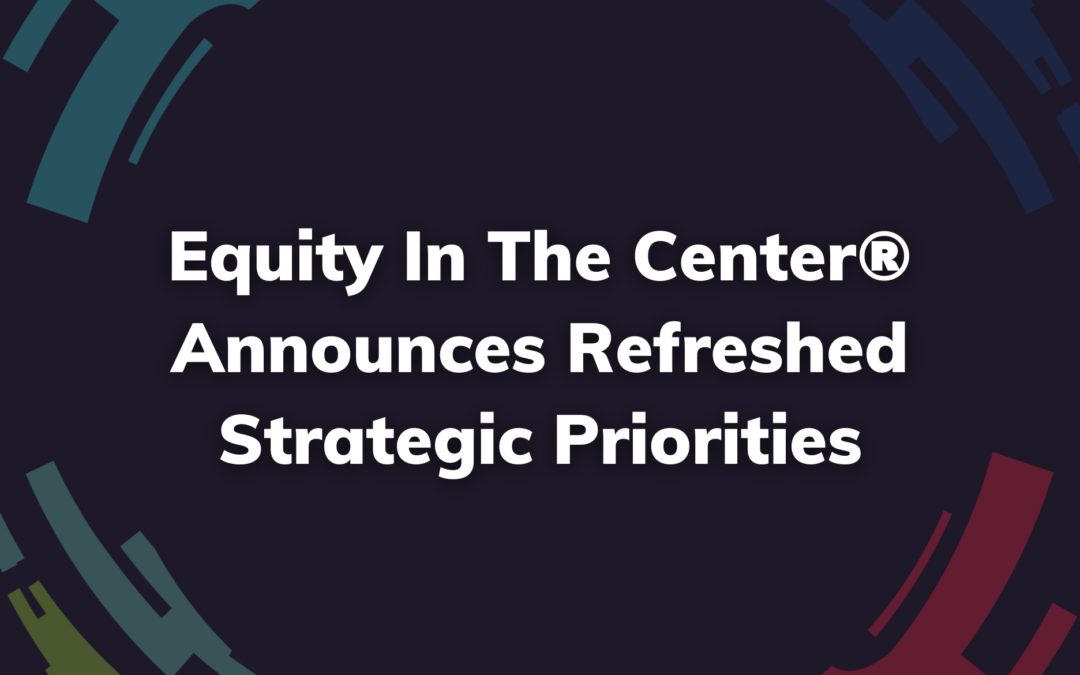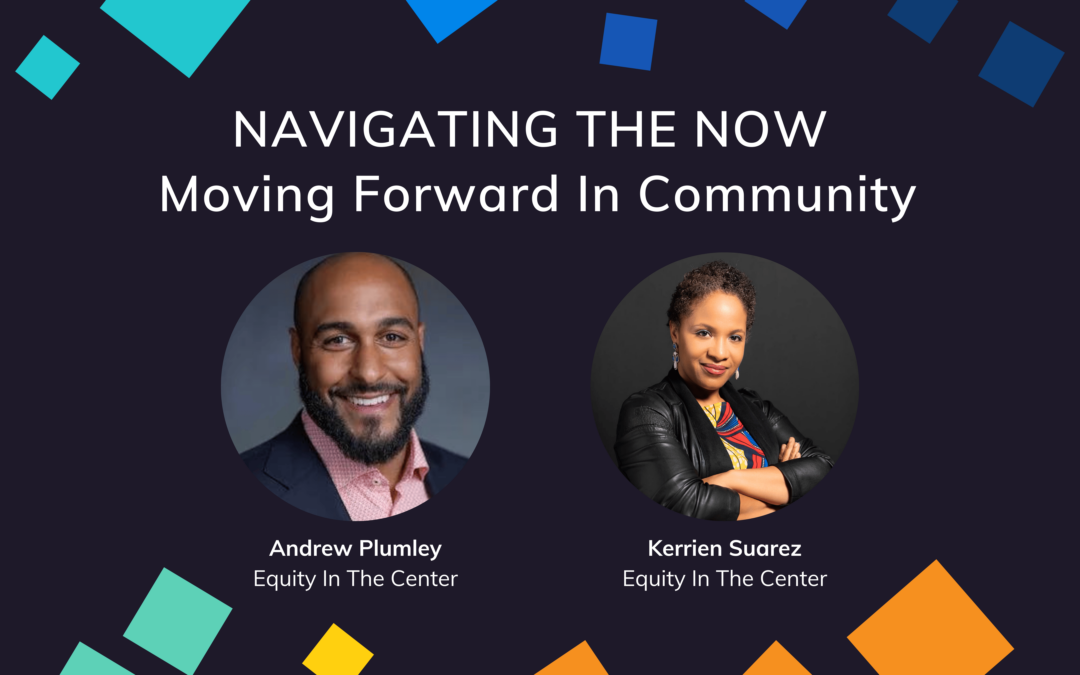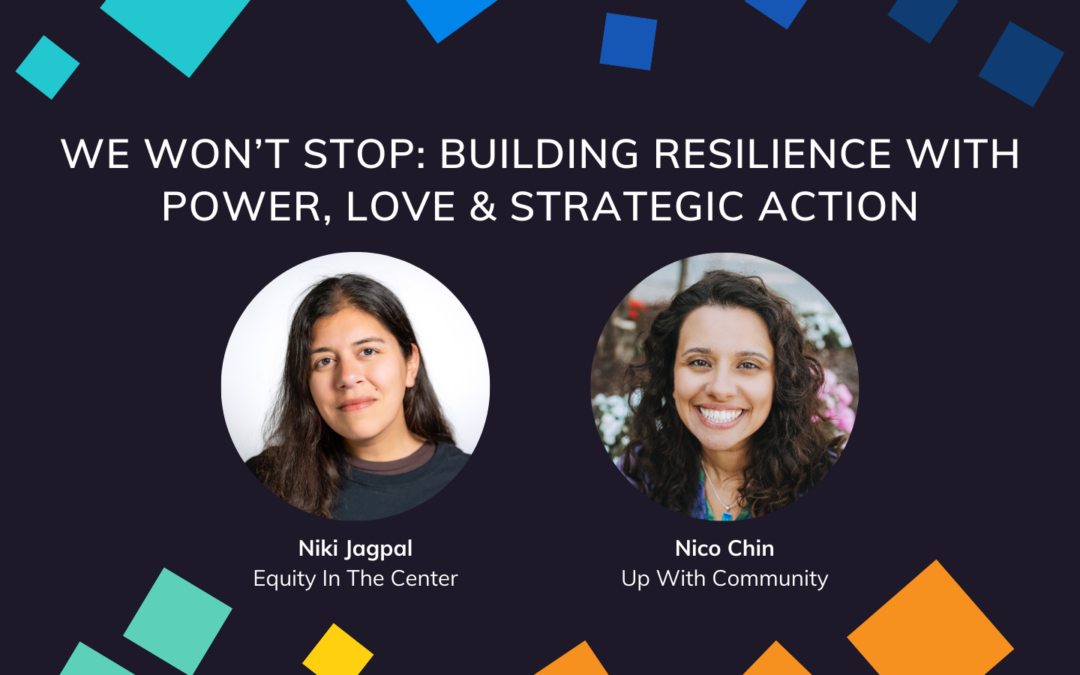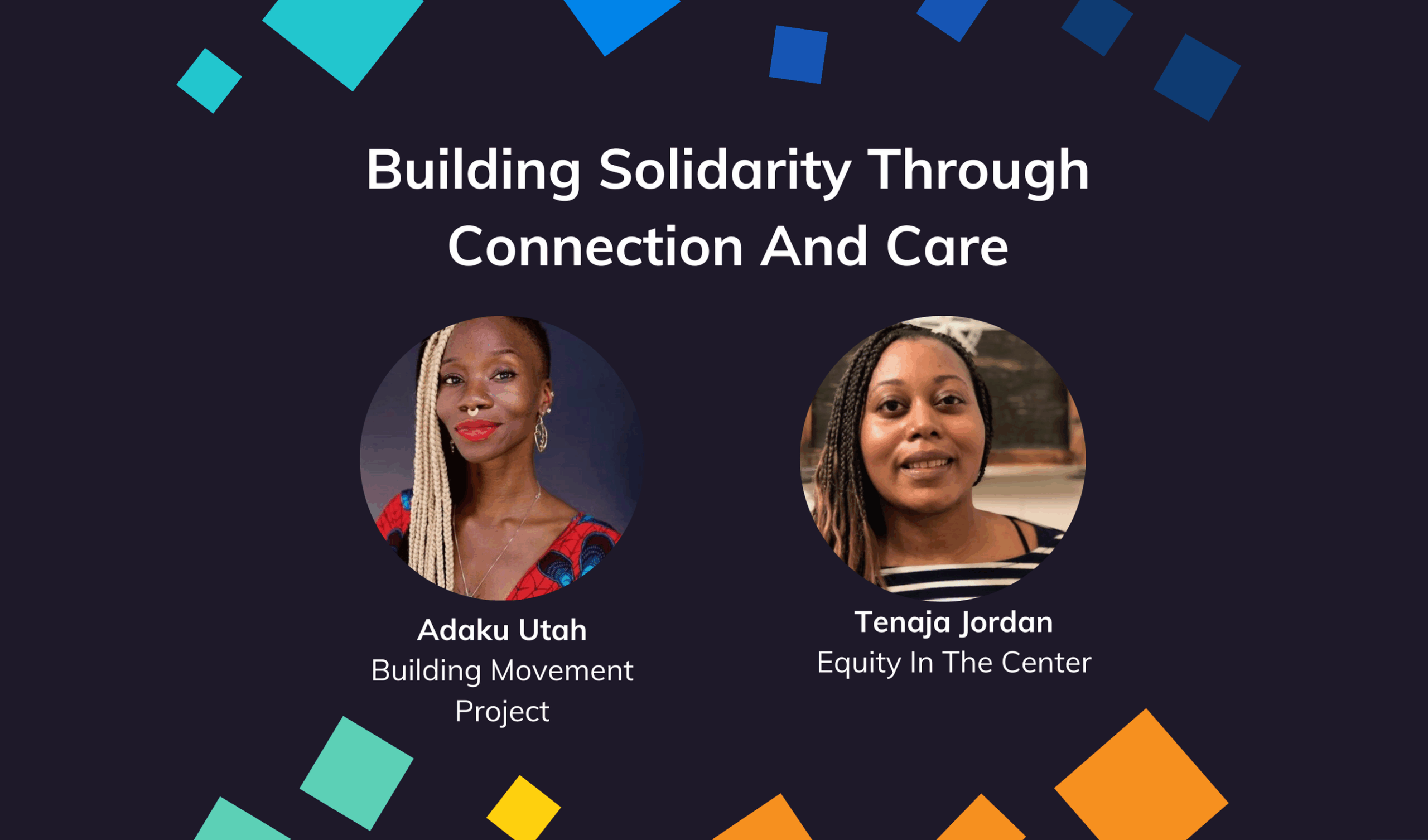
In order to advance intersectional race equity, we need solidarity rooted in deep relationship, mutual defense, and coordinated action. That’s how we build power and work toward a future where our collective liberation is realized. On July 17th, EIC’s Tenaja Jordan met with Adaku Utah of Building Movement Project (BMP) in a Linkedin Live to explore strategies and resources for building solidarity in the current moment. From the very start, Tenaja set the tone by rooting the conversation in gratitude, and lifted up BMP as a vital force in helping leaders and communities build the kinds of relationships that transform not just organizations, but the world around us.
Adaku further brought both depth and joy into the space by sharing what fortifies them: community showing up for one another. Whether it’s communities acting in defense of their immigrant neighbors, abortion funders ensuring access to care, or elders being sustained by collective support, Adaku reminded us that solidarity is already alive in our everyday acts. In a culture that pushes individualism and control, they challenged us to keep choosing community over isolation, care over cruelty, and connection over fear. Sometimes, that practice looks like something as simple and beautiful as line dancing in New Jersey.
Tenaja connected this to her own grounding in Little Haiti, a neighborhood that fought back against gentrification and showed support for immigrant communities through collective action. Sharing from her perspective as a Black, queer, disabled professional in racial equity work, Tenaja spoke to the courage it takes to stay visible and rooted in movements. Adaku honored that truth, naming how systems of power weaponize difference to divide us-but also how solidarity, when practiced with intention, becomes transformative. It’s not transactional. It’s a discipline of building relationships wide enough to hold complexity, meeting harm without collapse, and learning to stay in connection even through conflict.
The conversation also highlighted how BMP is helping make this vision real. Their State of Solidarity convenings bring organizers together across issues to map the political landscape and develop tools for practice. Their frameworks, guides, and trainings help organizations shift from theory into practice. Adaku reminded us that our movements don’t have a “messaging problem”—people are capable of holding complexity. What we need are more open doorways, more entry points, so that everyone can find their place in the work.
One of those doorways is the Solidarity Is cohort, a free six-week program for newer organizers. It’s designed to strengthen skills for generative conflict, sustain communities in the long haul, and nurture lasting networks of care. Utah also pointed to other ways to plug in—the September 30th State of Solidarity session on conflict, the Solidarity Is podcast, and new resources on practicing solidarity in authoritarian conditions.As the session wrapped, Tenaja asked about the next Race to Lead survey. Utah confirmed it will once again track how race shapes organizational life and spotlight the experiences of leaders of color.
The event closed in the spirit it began: with gratitude, courage, and the reminder that solidarity is not an idea to admire—it’s a practice we can choose, again and again, to carry each other forward.
